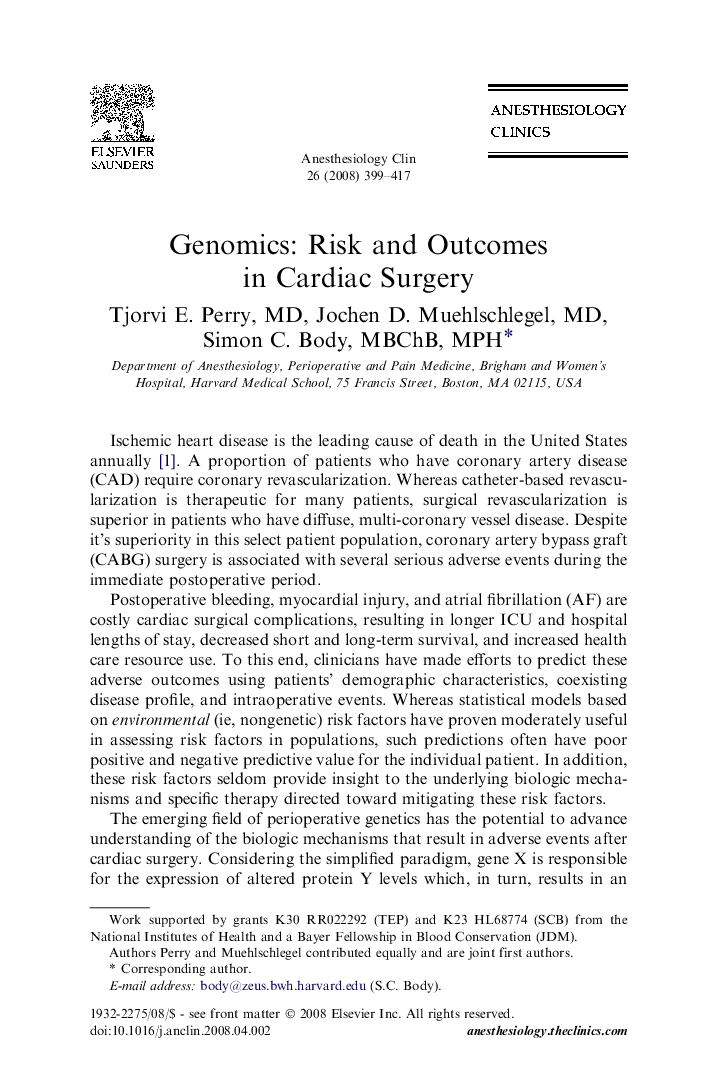| Article ID | Journal | Published Year | Pages | File Type |
|---|---|---|---|---|
| 2744983 | Anesthesiology Clinics | 2008 | 19 Pages |
Abstract
Coronary artery bypass graft surgery is associated with several frequent postoperative adverse events. Outcome prediction is valued by patients and practioners, because it provides some measure of balancing risks and benefits and provides expensive or higher-risk therapies to individuals at highest risk. Surgeons and anesthesiologists traditionally have relied on demographic, preoperative, and intraoperative risk factors to predict outcomes after cardiac surgery. Yet, such predictions often have poor positive and negative predictive value for the individual patient. Perioperative genetics attempts to determine the impact of an individual's genetic variation on the risk of developing adverse postoperative outcomes. In this article, the authors discuss emerging evidence that a patient's genetic makeup predisposes him or her to adverse outcomes following cardiac surgery and provide examples from perioperative bleeding, myocardial injury/infarction, and atrial fibrillation.
Related Topics
Health Sciences
Medicine and Dentistry
Anesthesiology and Pain Medicine
Authors
Tjorvi E. MD, Jochen D. MD, Simon C. MBChB, MPH,
